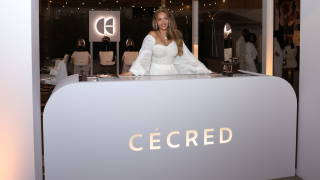With the Academy Awards firmly in the rearview, Hidden Figures stands as the highest-grossing film nominated for Best Picture this year. Given that, it’s easy to get cultural amnesia and forget that very little of the film’s success was expected.
Unlike Moonlight and Fences, which were both the darlings of critics early on, Hidden Figures’ critical and commercial success managed to be one of the surprises of this awards season that everyone should’ve seen coming. It’s illustrative of the hoops Black women jumped through, and continue to jump through, to make valued societal and cinematic contributions.
If no one ever told the story of Katherine Johnson, Mary Jackson and Dorothy Vaughan, their accomplishments would be lost to the dustbin of history, but their impact on NASA remains. If Hidden Figures hadn’t been adapted from book to big screen, the story would still be a powerful reminder of what people can do if given a chance to shine. And if not a single soul watched the movie, it would still be a great picture.
The film’s strength lies as much in the promotion of the movie as the power in the material it pulls from. That its success was a surprise to many in the media is another example of the bigotry of low expectations that Black cinema and Black women are impacted by in nearly every walk of life. With three strong, accomplished Black women leads, and a substantial backing from 20th Century Fox to make sure everyone and their mother knew the movie was coming, getting to Oscar night and blowing out box office expectations should have been a given.
Every project that gets a push isn’t guaranteed to succeed, but projects that do not are far more likely to fail. With a fear that a box office disappointment will close the door for other Black filmmakers looking to tell Black stories, Black movies are tasked with the unfair burden of being Jackie Robinson every time. That said, Hidden Figures is a triumph, sending a powerful message that Black stories with Black leads that studios decide to give a damn about are commercially viable.
Hidden Figures is also a tragedy.
As Gary Susman of MovieFone noted:
“Only in America would Jim Crow and institutional sexism have been a barrier to achievement for these women, and only in America could they have overcome those barriers through pluck, hard work, and sheer merit. And only in America could mainstream audiences respond to this feel-good entertainment with the assumption that racism and sexism are problems we solved for good during the Civil Rights Era in which the movie is set, and that they’re not something we need to feel bad about or work to correct today.”
There’s an understated danger in keeping Hidden Figures trapped as a period piece. That danger is exacerbated in the fictional whitewashing that takes place when Space Task Group head Al Harrison, played by Kevin Costner, destroys the “colored” bathroom sign in front of dozens of his Black and White NASA co-workers after learning Johnson is forced to use the colored restroom across the organization’s campus, costing her 40 minutes of productivity a day.
The scene is a work of fiction.
Not only did Harrison not tear down any signs in a grand display of progressive White heroism, Johnson, by her own admission, never used the colored restroom. “I just went on in the white one,” she said.
Hidden Figures’ director Theodore Melfi defended the inclusion, saying, “There needs to be white people who do the right thing, there needs to be black people who do the right thing.”
The reality is that White people don’t always do the right thing. There are seldom armies of White saviors in real life—and if there were, Hollywood wouldn’t have to keep shoe horning them into movies to comfort White moviegoers who need to see themselves reflected as heroes.
In fact, if there were more White allies, Hidden Figures might not feel as contemporary as it does.
Aside from the space race and Civil Rights Movement backdrop, Hidden Figures could easily be set in present day.
Before America lauds itself and takes a victory lap as being a beacon of racial progress, we cannot forget that Black mothers are still fighting for and, in some cases, going to jail over the desire to see their children get into good schools— just as Johnson’s mother did for her.
Like Johnson, Jackson and Vaughan, too many of us know what its like to be met with the cold stare of suspicion from law enforcement instead of the warmth of being treated with dignity simply because we are people. And for Black women like Sandra Bland, that suspicion can escalate routine encounters with the blink of an eye.
There are countless stories from present day of Black women, like Johnson, being mistaken for the help. Or the three-fourths of Black women scientists who responded to an online survey indicating they consistently have to display their credentials. And again like Johnson, even when those credentials are on display, it still may not be enough. Dr. Tamika Cross discovered that on a Delta Airlines flight after trying to render aid to a passenger in need, only to be turned away by a flight attendant who sought an “actual physician.” There are also no shortage of Black women denied opportunities to be fully contributing and respected entrepreneurs or members of teams in public and private organizations nationwide, not because their work is subpar, but simply because their worth is perceived to be. In the often-lucrative world of tech startups, the average failed startup founded by a White man receives more than $1 million in funding. For Black women, that number is a paltry $36,000.
If we are to continue down the road of believing that meritocracy isn’t a myth, we also have to acknowledge that in many ways, not only are Black women regularly living up to the standard, but they are also the standard.
With $163.9 million in box office receipts and counting, Hidden Figures forges a new path for Blacks in Hollywood, proving a little investment goes a long way.
Let’s hope the rest of society follows that lead.
AJ Springer is a writer, questioner of everything and lover of good conversation. Follow him on Twitter @JustAnt1914.













